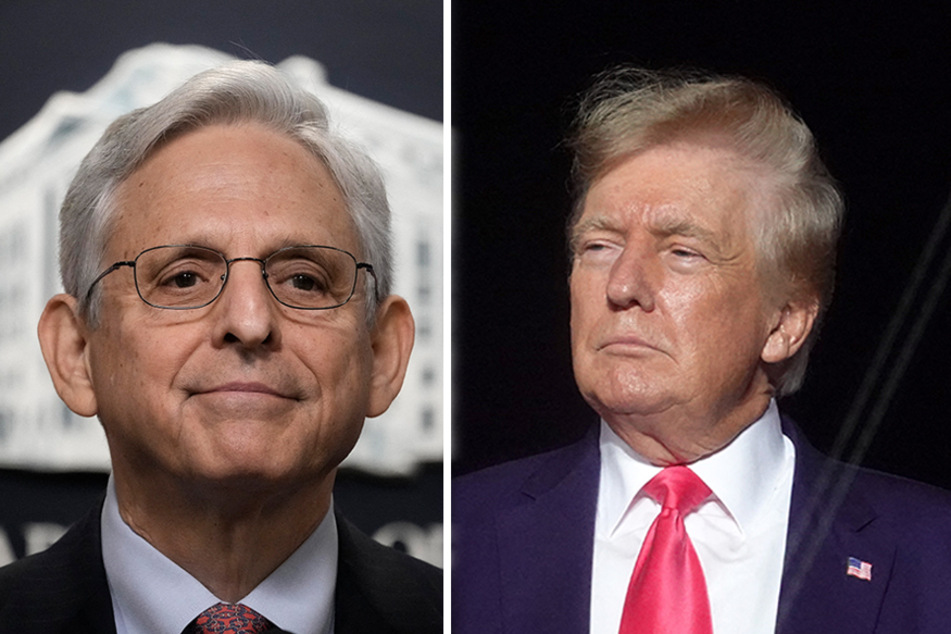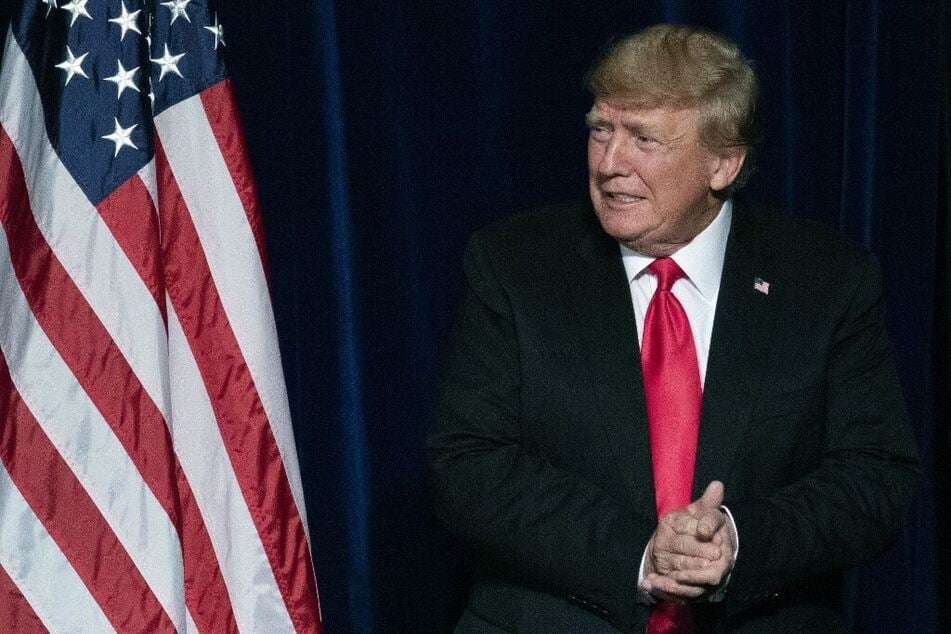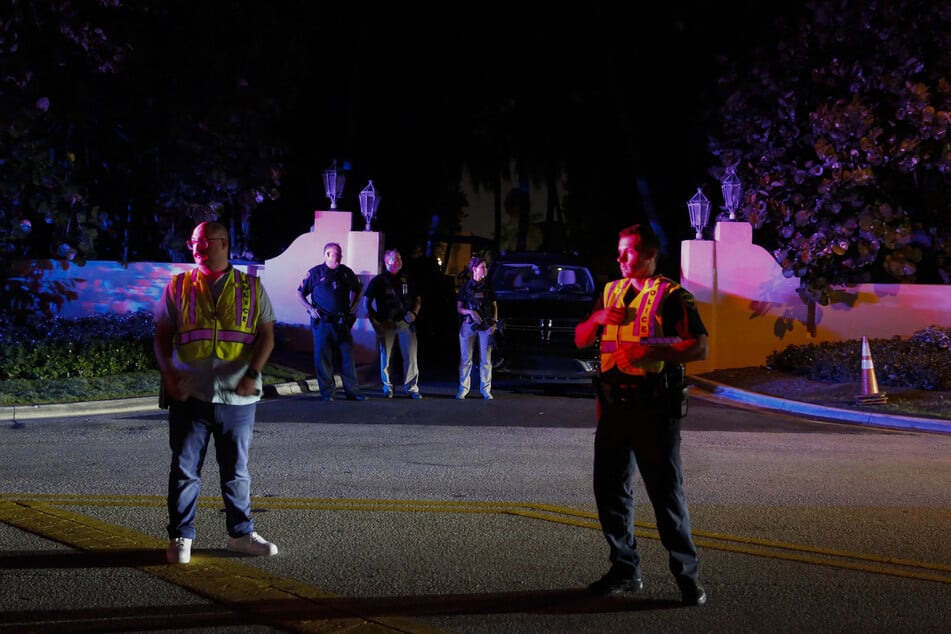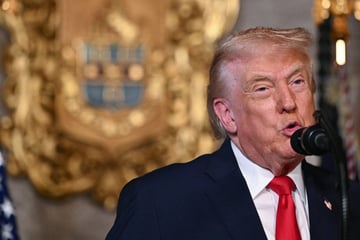Redacted affidavit serves Trump another legal blow in the credibility department
West Palm Beach, Florida - The redacted affidavit used to secure the search warrant for former President Donald J. Trump's Mar-a-Lago estate has been released – and it's extremely telling.

The Department of Justice made public the highly redacted affidavit on Friday, laying out the probable cause of the search and signalling what the FBI was looking for in its raid of Trump's West Palm Beach estate earlier this month.
Though much of the 38-page filing was blacked out, it still provided telling information that countered Trump's legal team's claims that the former president had been compliant with the DOJ and the National Archives and Records Administration's (NARA) requests.
The document, which was made public after Judge Bruce E. Reinhart ruled a redacted version should be available due to the "historical interest" of the search, also stated that the FBI's investigation was prompted by the NARA's discovery of 184 highly classified documents within the 15 boxes of records that Trump returned from Mar-a-Lago in February 2022 – roughly one year after his term as president concluded.
25 of the documents were marked "top secret," 67 were marked "confidential," and 92 were marked as "secret." According to the affidavit, the classified documents that were stored at an "unauthorized location" appeared to contain National Defense Information (NDI) and other highly sensitive records.
But the bombshell findings didn't stop there.
Redacted affidavit indicates Trump wasn't compliant with the DOJ

Another perplexing revelation in the redacted document was that the NARA made a request to the former president and his team for missing Presidential Records Act documents in May 2021, and continued to file requests until "approximately late December 2021 when NARA was informed twelve boxes were found and ready for retrieval" at Mar-a-Lago.
Included in the published doc was an email from one of Trump's attorneys, Evan Corcoran, stating that "when a request was made for the documents by the [NARA], President Trump readily and voluntarily agreed to their transfer to NARA. The communications regarding the transfer of boxes to NARA were friendly, open, and straightforward." Despite his claims, the timeline spelled out in the affidavit does not indicate that the former president "readily and voluntarily agreed" to return the records he had.
Instead, Trump seemingly ignored the DOJ's requests for seven months before notifying the department that 15 boxes were ready for retrieval. Given that roughly eight months later the FBI removed an additional 27 boxes from his Mar-a-Lago estate during its raid, it's indicative that the 76-year-old wasn't fully compliant with the government's requests.
Upon review of the returned documents, the NARA then sent a referral to the DOJ regarding its findings, leading to the FBI opening a criminal investigation "to, among other things, determine how the documents with classification markings and records were removed from the White House (or any other authorized location(s) for the storage of classified materials) and came to be stored at [Mar-a-Lago]."
The FBI also sought to determine whether the storage location of the documents at Mar-a-Lago was an authorized location, to find out if any other additional classified documents were still on the premises, and to "identify any person(s) who may have removed or retained classified information without authorization."
The former president calls the redacted affidavit a "total public relations subterfuge"

Because of this, the FBI concluded that there was "probable cause to believe that additional documents that contain classified NDI or that are Presidential records subject to record retention requirements currently remain at [Mar-a-Lago]. There is also probable cause to believe that evidence of obstruction will be found."
According to the affidavit, the DOJ's legal counsel sent a letter to Trump's legal counsel on June 8 reiterating that Mar-a-Lago was not an authorized storage location, regardless of any executive privilege the former president thought he had after leaving office.
"As I previously indicated to you, Mar-a-Lago does not include a secure location authorized for the storage of classified information. As such, it appears that since the time classified documents ... were removed from the secure facilities at the White House and moved to Mar-a-Lago on or around January 20, 2021, they have not been handled in an appropriate manner or stored in an appropriate location," it read.
"Accordingly, we ask that the room at Mar-a-Lago where the documents had been stored be secured and that all of the boxes that were moved from the White House to Mar-a-Lago (along with any other items in that room) be preserved in that room in their current condition until further notice," the letter concluded.
On June 9, the former president's attorneys sent an email in response: "I write to acknowledge receipt of this letter." In response to the release of the redacted affidavit, Trump reportedly took to Truth Social to voice is opinions on the matter, calling it a "total public relations subterfuge by the FBI and DOJ."
"Judge Bruce Reinhart should NEVER have allowed the Break-in of my home. He recused himself two months ago from one of my cases based on his animosity and hatred of your favorite president, me," Trump wrote.
Trump's legal troubles are far from over
As we now know, Judge Reinhart signed off on a search warrant on August 5, which the FBI executed on August 8.
On August 11, Attorney General Merrick Garland announced the DOJ was moving to ask a judge to unseal the search warrant for the sake of transparency, something Trump said on Truth Social he was not in opposition of. On August 12, the search warrant was officially unsealed for the public to review. After gaining Trump's lawyers' approval to unseal the warrant, Reinhart approved the action.
Last Monday, the former president's legal team asked a Fort Pierce judge to assign a "special master" to review the documents taken from Mar-a-Lago on August 8. However, Judge Aileen Cannon responded to the request nearly 24 hours later, asking Trump's attorneys for more information, like whether she even had the jurisdiction to grant their request.
Trump's team was ordered to respond to Cannon's requests by Friday, though it doesn't appear they've done so yet.
Cover photo: Collage: SCOTT OLSON & DREW ANGERER / GETTY IMAGES NORTH AMERICA / Getty Images via AFP

